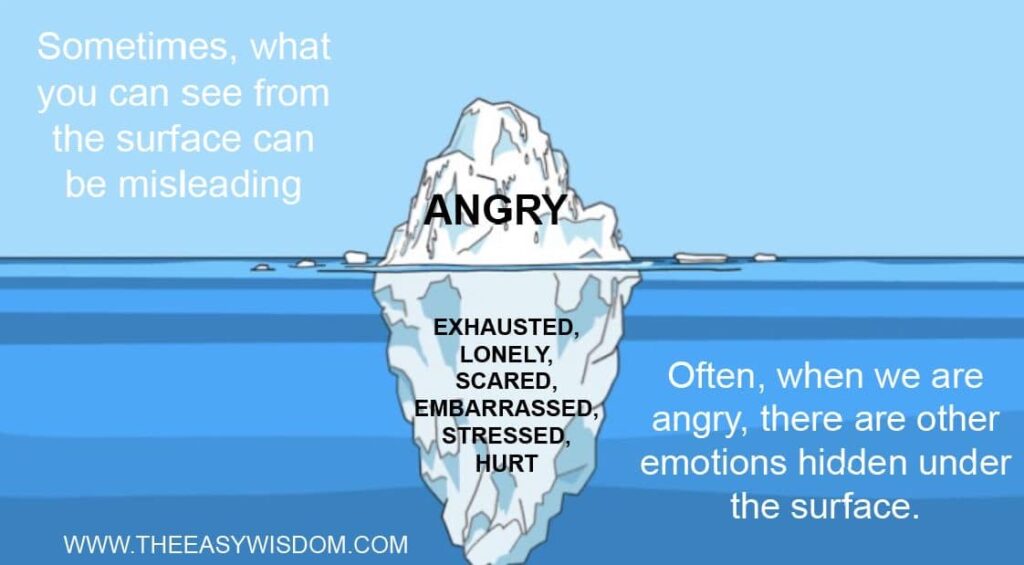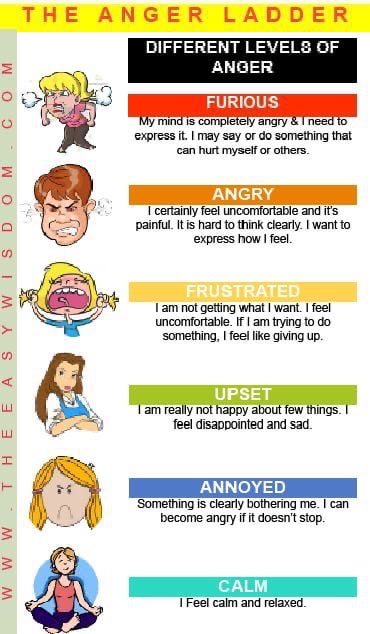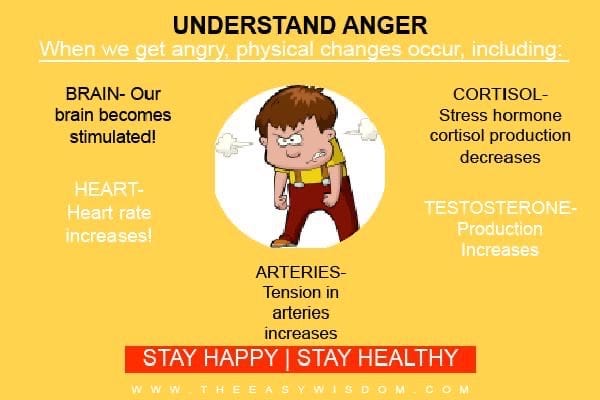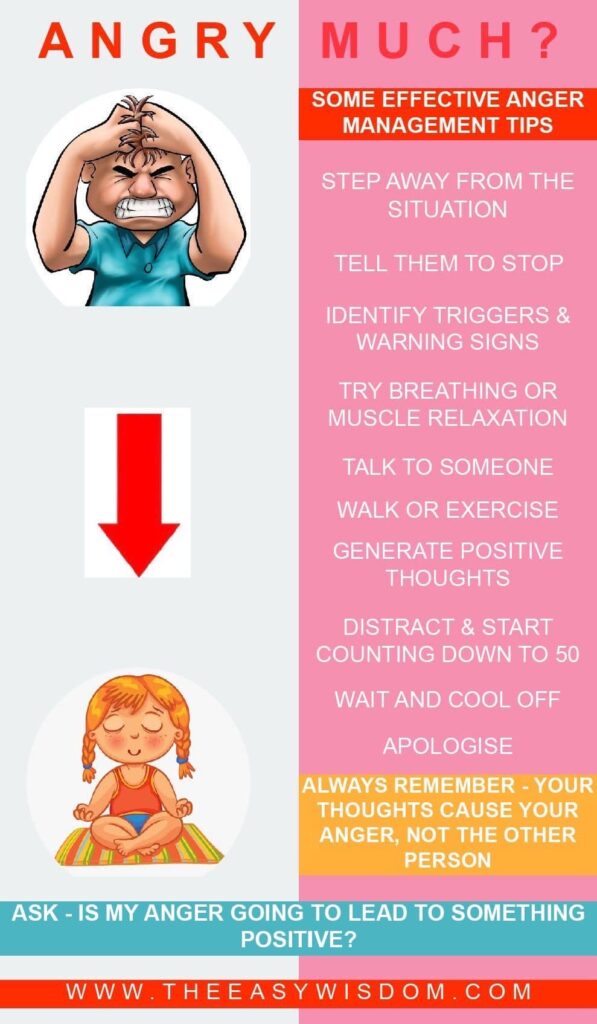Do you often fret when someone does not give you the way on the road? Does your blood pressure shoot up when your wife complains about some household chores? Or do you get easily fumed when your child does not listen to you? If your answer is yes, probably you would be thinking about how to control your anger, right? Anger is a normal feeling, and everyone gets angry. But when it starts controlling you, it is a matter of concern. Untamed anger can take a toll on your health, relationships and quality of life. So if you get too angry too often, it is time to tame your temper and learn how to deal with anger.
How you perceive and deal with your everyday stressors, disappointments, setbacks, and frustration creates an overarching impact on your life. One such consequence of your formidable and burdensome life is anger. Anger is a normal emotion if it helps us work through our issues. However, if anger leads to undesirable behaviour like extreme aggression, outburst, abusive language, and physical altercation, it needs to be checked to avoid embarrassment. Therefore, it is desirable to manage your anger before it starts negatively affecting your life.
Extreme anger or anger problems are common issues. The only thing is that we should know how to control anger and use it constructively. Manifesting anger in the form of violence, throwing punches or abusing someone is undesirable. Instead, we should learn how to deal with anger, channelise it in the right direction, and administer it head-on. And best way to do it is to motivate yourself and constructively work towards reducing it. It is one of the most important anger management tips that you cannot overlook. And this is exactly what Mahatama Gandhi did. He is a brilliant example of a person who constructively managed his anger. In the book “The Gift of Anger”, Arun Gandhi wrote about how his grandfather’s childhood and marital life were marked with extreme anger issues. However, over the years, he introspected and transformed his anger into a motivating force to fight against injustice in the country. In Gandhi’s own words, anger is like electricity. It is just as powerful and useful if it is used intelligently but just as deadly and destructive if abused. So let us dig down deep and understand how to deal with anger. Also, let us learn and how to control your anger with a few simple anger management tips. So let us dig down deep and understand how to deal with anger. Also, let us learn and how to control your anger with a few simple anger management tips.
Recommended Read: 10 Holistic Self-Care Tips For A Healthy Mind, Body & Soul!

Symptoms of anger problems
Are you having anger problems? Let us find out! Here are some signs that indicate that your anger is not as normal as it seems:
- Your anger is affecting your social life.
- Your anger is affecting your personal life and your relationships.
- Your anger is affecting your mental health.
- You are always having negative thoughts and thinking of negative experiences.
- You have to hide your aggression and anger.
- You feel impatient, antagonistic and irritated.
- You often argue with people and lose your temper.
- You get physically violent and threatening when angry.
- You are unable to control your anger.
Do you relate to most of the signs above? If your answer is yes, you have anger issues, and you should learn how to deal with anger.
The psyche behind anger
Before we learn how to deal with anger, let us also understand the primary reasons behind anger. And the primary emotions of fear and sadness are the underlying feelings of anger. Perceptions of fear and sadness create feelings of vulnerability. These feelings are uncomfortable to deal with. We all want to have a sense of control and certainty in life. And it is not always possible. And we humans mask our fears and sadness with anger. In short, anger is a manifestation of our inability to deal with uncertainties and feelings of powerlessness, lack of control, disrespect, violation, inequity, etc.
Anger has also been linked to our basic survival instincts since evolution. Anger alerts us when we feel something is not reasonable, and in response, we express anger to protect ourselves and our loved ones from injustice or harm.
Although anger is the most natural emotion exhibited by humans and anger management seems complex, it is actually simple. When we understand the root cause of our undesired behaviour, we become more adept at handling it. And the best anger management tip is to face yourself head-on and understand your underlying emotions. If we learn how to manage anger, we will be happier and will be able to develop more meaningful relationships.

The anger ladder or the stages of anger
Before we understand how to deal with anger, let us look at various stages of anger or the anger ladder. The various stages of anger are as follows:
- Calm: You feel calm and relaxed.
- Annoyed: Something is clearly bothering you and, if not taken care of, you will become angry.
- Upset: You are not happy about certain things. You feel disappointed and sad.
- Frustrated: You are not getting what your want, and as a result, you feel uncomfortable. And if you try to do something, you feel like giving up.
- Angry: You are uncomfortable, and it is a painful feeling. You are finding it hard to think clearly and want to express how you feel.
- Furious: Your mind is out of control and full of anger. You want to express yourself and may do something that can hurt you or others.

There is a huge difference between feeling angry and showing it. The former is a state of emotional and physiological arousal. While the latter, called aggression, shows that anger is directed towards other people, with an intent to cause harm. As we express our aggressiveness by yelling and screaming, we feel better, but it does more harm than good. Therefore, it is important to manage your anger timely and learn how to deal with anger and control it.

Harmful effects of anger
PHYSICAL HEALTH
Constantly operating at high levels of anger can damage your physical health and lead to heart disease, diabetes, high blood pressure, insomnia, and compromised immune systems.
MENTAL HEALTH
Anger consumes a lot of your mental energy, clouds your judgement, and makes it harder to enjoy life. It can easily lead to depression, stress, and other mental health conditions.
PROFESSIONAL HEALTH
The difference in opinions, heated arguments, and workplace differences can be productive. But constant anger at the workplace and lashing out will only alienate you from colleagues, managers, and other stakeholders.
SOCIAL HEALTH
Anger can cause deep dents in your relationships with the people you love the most. Extreme anger makes it hard for others to understand you, trust you, feel comfortable in front of you, or even speak up honestly.
How to deal with anger and how to conrol your anger?
If you are looking for ways to manage and control your anger, the best way to handle anger is to dig deep within yourself and understand those emotions (pain, grief, fear) that create feelings of uncertainty and uncontrollability. Even with our anger management tips, completely getting rid of anger is not the aim as it is not always a negative feeling that we experience. Instead, we should focus on what is in our control and what isn’t. And it helps us check on what might trigger our anger. As cliché as it might sound, deep breathing, taking a walk, counting, drinking water are sure shot ways of controlling anger.
- Recommended Read: Learn to say ‘no’
Anger management tips
Here are a few simple yet effective anger management tips that will help you deal with anger issues:
- Step away from the situation.
- Tell the other person to stop.
- Identify your triggers and read the warning signs.
- Try breathing and muscle relaxation.
- Speak to someone and explain your feelings.
- Take a walk or exercise.
- Think of positive things and generate positive thoughts.
- Distract yourself and start counting down to 50.
- Wait and cool off.
- Think before you speak.
- Apologise.
- Use humour to release your tension.
- Practice empathy, mindfulness and gratitude.
- Do not hold a grudge.
- Forgive and forget.

It is also important to note that sometimes the frequency and severity of anger increases to the point that it creates dysfunction in our relationships, work performance, and mental health. Under such circumstances, it is advisable to visit a psychologist, as anger can indicate some serious symptoms, such as mental disorders such as bipolar disorder, borderline personality disorder, intermittent explosive disorder, etc.

Getting to forgiveness after being embarrassingly angry

How to move on and forgive yourself
If you are trying to forgive yourself for aggressive or bad behaviour, try to make amends first like asking for forgiveness by making restitution or apologising. This will make you feel morally okay to move on & forgive yourself.
Prayers can lead to peace and help you seek forgiveness
Prayer can help you forgive and attain peace. When an aggrieved person prayed for the person who wronged them, he or she can forgive that person more effectively. Also, forgiveness is good for health and may help you lower your blood pressure and recover quickly after stress.


Find good in the bad and record your feelings
When someone has wronged you and made you very angry, try to look at the incident from another perspective. That is, try to find some positive or benefit in the experience. This will help you achieve forgiveness much easier and help you attain your lost peace of mind. Writing about the benefits of transgression or wrongdoing can help people become more benevolent & less vengeful.
Some anger myths busted
| MYTH 1: You should not hold anger. It is healthy to vent it out. |
| Indeed, suppressing your anger or ignoring it is not healthy, but venting it out randomly on anyone does more harm than good. It is better to manage your anger effectively and channelize your energy in the right direction, rather than exploding aggressively. |
| MYTH 2: Anger and aggression help you earn respect and help you achieve what you want. |
| It is well said that ‘command respect and not demand it’. Respect will not come from bullying people as people might get afraid of you but may not respect you. Alternatively, if you are good at managing your anger issues and can handle opposing viewpoints in a dignified manner, others may not only listen and accommodate you but also respect you for your maturity. |
| MYTH 3: I can’t control my anger and I can’t help but explode. It is something not in my hands. |
| You can certainly manage your anger and manage other emotions too. It is definitely in your hands. Only you can manage your emotions. But first, you need to understand the underlying causes of your anger, work upon them, and practice the anger management techniques mentioned in the article. |




